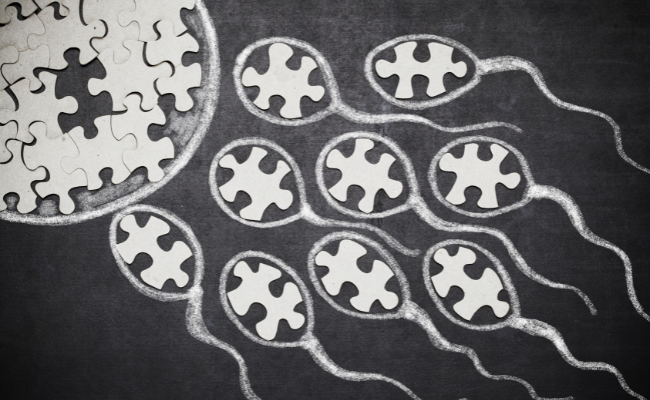Can Hyperspermia Affect Fertility? What You Need to Know
Hyperspermia is a condition among men where they produce a high amount of semen during orgasm. Studies show that even though Hyperspermia might not be a serious health issue, it is directly linked to men’s infertility.
The cases of Hyperspermia are relatively low compared to other conditions that affect sperm.
In this article, we will explore all the effects of Hyperspermia on the male reproductive system. You’ll also learn its causes, symptoms, and possible treatments.
Understanding Hyperspermia

If you’re reading this, you probably have heard about Hyperspermia but don’t know what it is. Here is all you need to know about its cause, symptoms, and treatment:
What Is Hyperspermia?
According to the World Health Organisation (WHO) semen analysis, the normal volume of semen during climax ranges between 1.5 ml and 5.5 ml.
Any volume over this is a classic case of Hyperspermia. In some rare and extreme cases, men produce over 10 milliliters of semen during completion.
Semen is primarily made up of sperm from the testicles and other seminal fluids the seminal vesicles produce.
Most cases of Hyperspermia are defined by a higher volume of seminal fluid than the sperm count. This condition reduces sperm concentration and motility, which can then cause fertility problems.
Symptoms and Causes of Hyperspermia
The major and obvious symptom is an increased volume of semen during sexual intercourse, which may cause delayed and difficult climax.
Other Hyperspermia symptoms may include feeling slight pains during the discharge of semen, fatigue, and shortness of breath after an orgasm.
Research also shows that men suffering from Hyperspermia experience a higher sex drive compared to men without the condition.
Temporary Hyperspermia (primarily caused by a period of abstinence) is normal and typically resolves with time. Still, the root cause of prolonged Hyperspermia remains unclear.
However, remember that a male’s semen volume usually returns to a normal range after temporary Hyperspermia.
One theory suggests that prolonged Hyperspermia can be traced to lifestyle habits, dietary choices, and taking supplements to enhance sex organs. However, there isn’t any data to verify this.
You may also like: Male Birth Control: What You Need to Know
Another theory is that a mild prostate gland infection may cause inflammation. This inflammation may cause the fluid volume to increase. Nonetheless, the exact cause of the condition remains uncertain.
Diagnosis and Treatment Options
To diagnose prolonged Hyperspermia, health professionals conduct a thorough medical history review and physical examination.
This exam includes a semen analysis to evaluate semen volume, sperm count, and sperm motility. Here are some common tests your doctor would most likely perform:
Semen Analysis: To check your sperm, you must fill a container with your semen. You then need to give the sample to a lab technician. The technician will examine the number, movement, and health of your sperm.
Hormone Tests: A blood test can tell if you have enough male hormones like testosterone. Having low testosterone can reduce your chances of having babies.
Imaging: An ultrasound of your testicles or other reproductive organs may be necessary. This way, your physician can identify any issues that could potentially cause infertility.
Although you might not need any Hyperspermia treatments, it can impede the ability of these men to get their partners pregnant. In such cases, there are several treatments available that can enhance your chances of getting pregnant.
You can consult a fertility specialist who might prescribe medications to boost your sperm count. As an alternative, a sperm retrieval technique can be used to extract sperm from your reproductive tract.
After this process, it can be directly injected into your partner’s egg. This step is called in vitro fertilization (IVF) or intracytoplasmic sperm injection (ICSI). The resulting embryo can be implanted in your partner’s uterus to grow.
How Hyperspermia Can Affect Fertility
Hyperspermia is a rare condition that results in a man producing a large volume of semen during ejaculation.
This may sound like a positive thing in terms of fertility. Still, the effects of Hyperspermia on sperm count can vary but, in most cases, aren’t good.
Research has shown that men with Hyperspermia may have a higher overall sperm count compared to those without the condition.
However, the concentration of sperm in the semen may be diluted, leading to a lower sperm count per milliliter of semen. This can impact fertility as a lower sperm count reduces the chances of successful fertilization.
Hyperspermia has also been linked to decreased sperm motility and abnormal sperm morphology.
According to one study, men with Hyperspermia were found to have a lower percentage of motile sperm. They also have a higher percentage of sperm with abnormal morphology, including abnormal head and tail shapes.
Improper morphology of sperm makes it difficult for sperm to go through the walls of the egg. The exact mechanisms behind the relationship between Hyperspermia and poor sperm quality are not fully understood.
However, there’s speculation that the increased semen volume may dilute the concentration of sperm, leading to a decrease in quality.
Managing Hyperspermia to Improve Fertility
A medical approach isn’t the only way to treat a diagnosed case of Hyperspermia. There are a few things you can do to reverse the condition or prevent it if you’ve not been diagnosed yet;
Lifestyle Changes to Improve Sperm Health and Fertility
Improving sperm health and fertility is achievable by adopting a healthy lifestyle. Key steps include maintaining a healthy weight, and consuming a balanced diet rich in fruits, vegetables, and whole grains.
Other healthy lifestyle choices include quitting smoking, limiting alcohol consumption, managing stress levels, exercising regularly, and avoiding exposure to toxins.
Being overweight or obese can decrease sperm quality, while smoking can damage sperm DNA, and reduce sperm count and motility. Drinking alcohol can lower testosterone levels and diminish sperm production.
Additionally, exposure to pesticides, chemicals, and other toxins can harm sperm quality. By making these lifestyle changes, you can improve your chances of achieving optimal sperm health and fertility.
Medical Treatments for Hyperspermia and Related Fertility Issues
Medical treatments for Hyperspermia and related fertility issues include clomiphene citrate and gonadotropin injections, which can increase sperm count and motility.
Also, varicocelectomy and testicular biopsy surgical procedures may help to improve sperm quality.
Clomiphene citrate boosts sperm count and motility by regulating hormone production, while gonadotropin injections stimulate testosterone and sperm production.
Surgical procedures like varicocelectomy and testicular biopsy can also help enhance sperm quality.
Alternative Therapies and Approaches to Managing Hyperspermia and Infertility
While conventional medical treatments are available, alternative therapies may also be effective in managing these conditions.
These therapies include acupuncture, herbal medicine, nutritional supplements, and lifestyle changes. These changes address underlying issues like hormonal imbalances, oxidative stress, and inflammation.
However, seeking guidance from a qualified healthcare professional and using alternative therapies in conjunction with medical treatments is essential.
By adopting alternative therapies, individuals may have a holistic approach to managing Hyperspermia and infertility.
Other Factors That Affect Fertility
Age, health, and lifestyle are important factors that can have a significant impact on fertility for both men and women. As individuals age, their reproductive ability decreases.
Women experience a more noticeable decline. After the age of 35, they can expect a reduction in the quantity and quality of eggs.
Conditions such as obesity, diabetes, and hypertension. can have negative effects on fertility. Unhealthy lifestyle habits such as smoking, alcohol consumption, and drug use can also adversely affect fertility.
To improve fertility, most healthcare professionals recommend maintaining a healthy lifestyle. This includes a balanced diet, regular exercise, and stress management.
Related Articles
Most importantly, seek medical advice and treatment for any underlying health conditions that may affect fertility.
Conclusion
Yes, Hyperspermia can affect fertility outcomes. However, it is not the only factor affecting men’s reproductive health.
Men concerned about their reproductive health should undergo a comprehensive evaluation to identify any underlying issues contributing to fertility problems.
FAQs
Here are some common questions people ask about Hyperspermia and infertility, and here are their answers;
Can Hyperspermia Cause Infertility?
Yes, Hyperspermia can cause infertility, but not all cases of Hyperspermia lead to infertility. However, Hyperspermia makes fertilizing an egg cell very difficult.
Is Hyperspermia Treatable?
Yes, some medical procedures and medicines can increase sperm health. There are also a number of alternative approaches that can help treat Hyperspermia.
Can Hyperspermia Affect Sexual Function or Pleasure?
Hyperspermia can affect sexual performance and pleasure in a few ways. It causes a delay in ejaculation, slight pain, and causes fatigue, and dizziness after males ejaculate semen.
On the other hand, it increases the sex drive in most men, which could be relatively good or bad.





